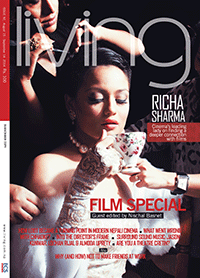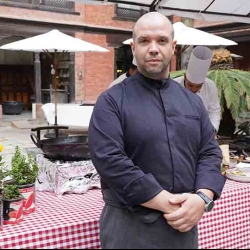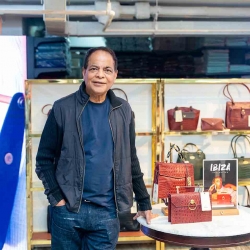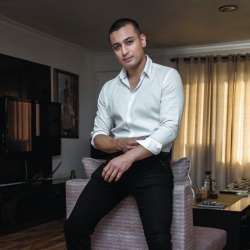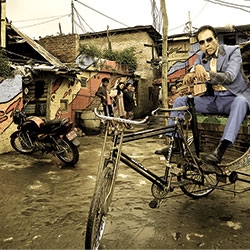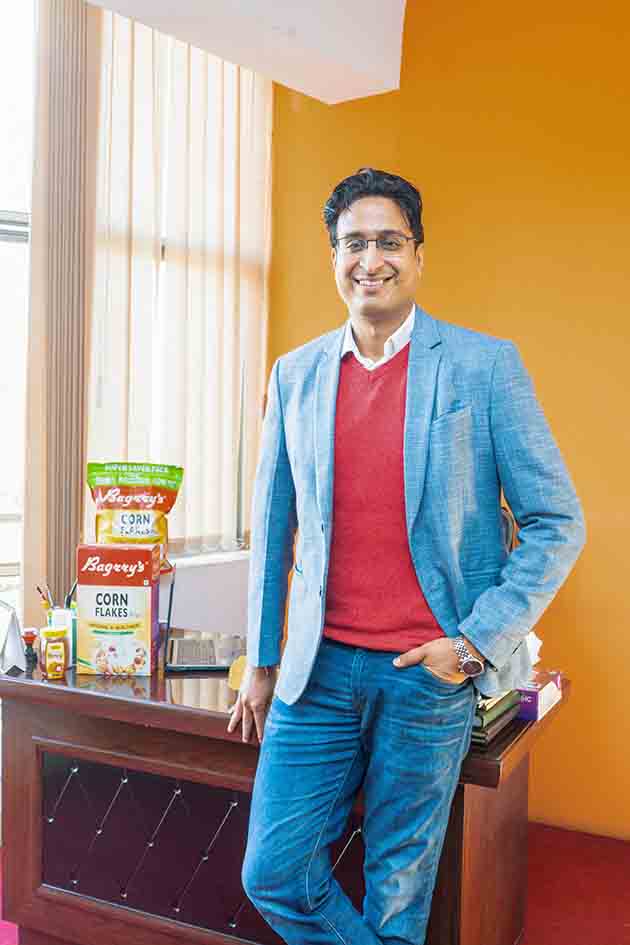
The market is expected to be driven by the rising demand for convenient, ready-to-eat breakfast cereal options and an increasing demand from new regions – such as the Asia Pacific and Central and South America – brought about by westernisation in consumer habits.
Ananta Agrawal has been in the manufacturing and trading sector in Nepal for the past 10 years now. With healthy foods being one of his main businesses, in the last decade, his firm has become one of the top companies when it comes to supplying breakfast cereals. With business interests in the field of FMCG & non-woven fabrics, he also has investments in the financial and healthcare sector. Besides that, his non-woven fabric industry was one of the major contributors in making Nepal self-sufficient in mask production (Both surgical and N95) during the covid period.
What is the Nepali market like when it comes to healthy eating?
On an average, each Nepali person consumes around 195kg of food every year to fulfill their calorie needs. Rice, flour, lentils, vegetables have always been our staple food. Fried meat has also been a major source of calories in our country. Historically, not even 5% of this figure constituted of health foods like oats, muesli, multifibre flour etc. But the past few years have seen a rise in demand with various brands available in the market. Last decade, there were only three breakfast cereal brands in Nepal, now there are more than thirty. It clearly suggests the shift in eating habits. Children are given oats, muesli etc. instead of noodles or rice for breakfast and even lunch. Honey is used in drinks rather than sugar.
What to do you think has brought the change in eating habits of the Nepali people?
A lot of factors are involved, although Covid is the answer that comes to most people’s minds. I believe social media has played a major role. They want to look healthy and good and people are getting a vast amount of knowledge through all these influencers, apps etc. have really brought this change. Previously, community campaigns or ads were needed to make people aware but now its just one click away. Additionally, the rise in education and manufacturing of packaged food has also helped.
Do you think the pandemic contributed to this massive shift?
Definitely. With the observation from scientists that obese and unhealthy patients were suffering more severe effects than their healthy counterparts, fear in people rose that it could be their tun next. Also, people had a lot of free time during covid so I feel their curiosity about healthy food grew and became a major topic of discussion.
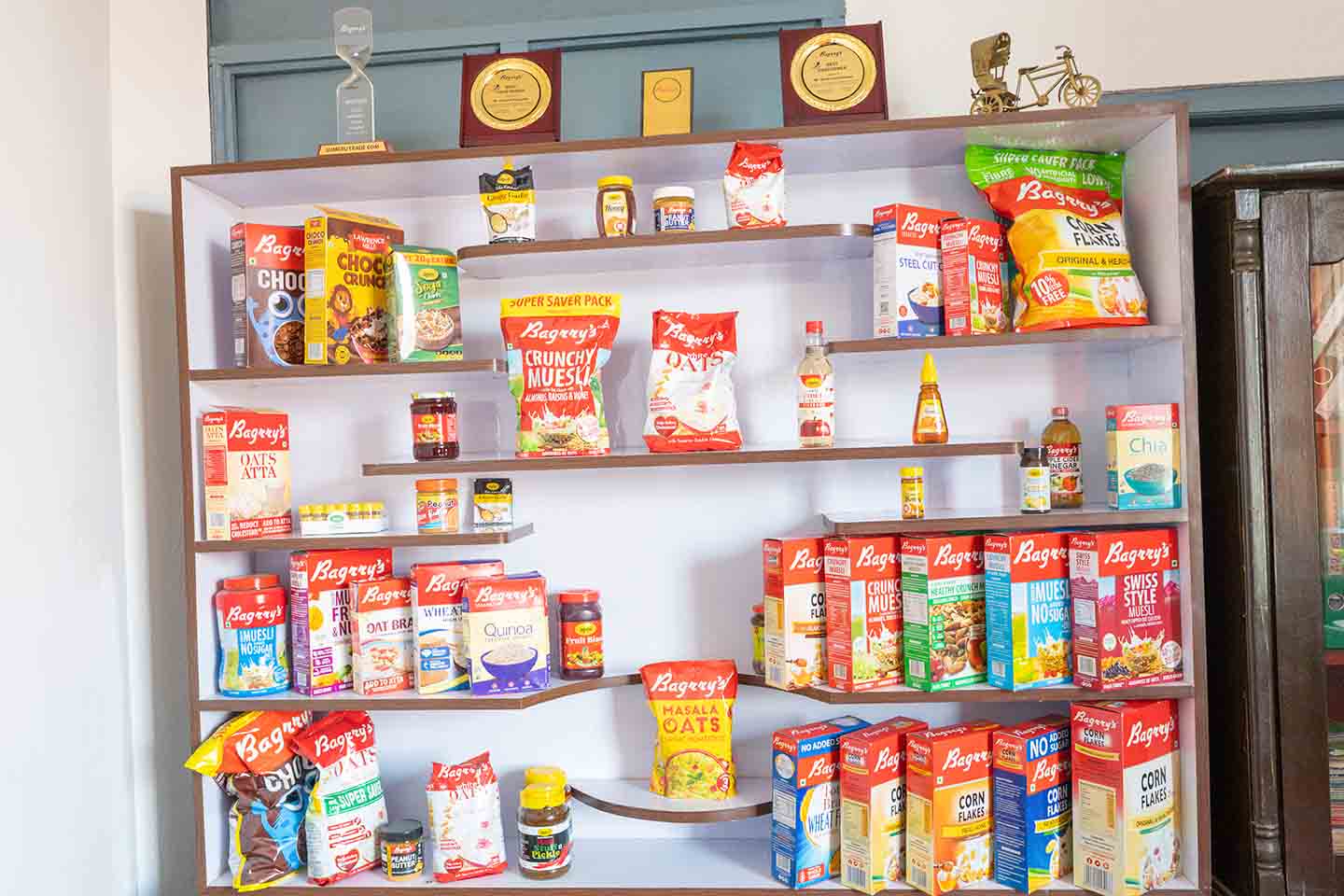
What are some of the misconceptions that are related to a healthy breakfast that’s sometimes hard to explain to people?
One of the major hurdles we face is tradition. Our eating culture has been the same for centuries. They think our ancestors never had any problem, so why adopt this so-called western culture. What we try to tell them is we are not changing the eating habit, but are just being selective. Another misconception people have is that healthy foods make us calorie deficient. Price also becomes a major point of discussion. But when we consider medical bills and reduction in life expectancy etc. people get the point. What we are selling is long term benefits, but we, Nepalis are used to looking for short term benefits.
How would you define healthy eating?
Food products which fulfill our minimal calorie needs and improves our overall health.
What are some of the best sellers in general that people mostly prefer?
Among all, cornflakes has been the most preferred product. Honey has become a substitute for sugar. Rise in organic, glutton free cookies and biscuits has been immense. Use of multi grain flour, etc. in making noodles and bakery items is also on the rise.
Where does your company stand when it comes to healthy food suppliers in the market?
We are one of the companies with the largest portfolio of health foods in the country. With products such as Oats, Cornflakes, Muesli, Honey, Immunity Seeds, Apple Cider, Protein Muesli, Multi grain bran, Wheat flakes, organic peanut butter etc. We are the market leader in oats in Nepal with our Bagrry’s brand and have been working our way up in honey with our APIS brand, constantly talked about for being in the top three.
What do you think is an ideal meal for our citizens based on our lifestyle?
I don’t believe in the concept of an ideal meal. Everyone has different needs. I would suggest a high protein and fiber rich diet with minimum carbs and sugar. Having a good, filling breakfast is very important.
How important is a healthy diet for the population?
It is very important. Right now, our average age is 25. So the next 2-3 decades is for us to work hard and make our country prosperous and that can happen only when we are healthy and fit. Additionally, if our population is healthy even after 50, our working population can be active. This is very important. Look at Japan, their average age is 48 which is almost double of ours but life expectancy is 84 compared to 71 of ours. So unlike us, they still have a lot of years to contribute to the betterment of their country.
Future of Health Foods in Nepal?
I see a very bright future. We are kind of seeing a revolution in Nepal. This generation of people is getting more and more into healthy living. Every day we hear of new products being launched, new industries being planned to manufacture them in-house, rather than importing. Companies fighting over giving all the health benefits in their products is very encouraging. I think the government should also take the cue from this and invest in increasing our crop yields and varieties to support these industries.
What is the major focus of your companies and various other brands?
Our main focus is consumer satisfaction. We strive to provide quality products at affordable prices so that an average Nepali has access to all our products.
In future what other products will you be launching?
We have recently launched wheat flakes and bran flakes. We are working towards launching all sugar free versions of our products. We will soon launch energy bars made from muesli. We have a product called protein meusli specifically targeting gym goers. We are working on adding a few more whey based health foods for gym lovers. We are also exploring the idea of launching beverages with health benefits to compete with carbonated drinks and juices.

